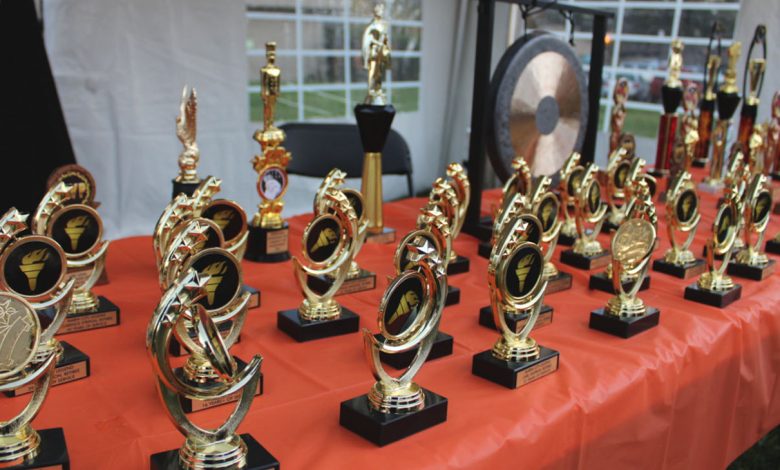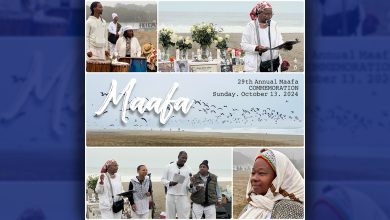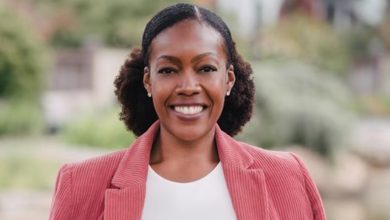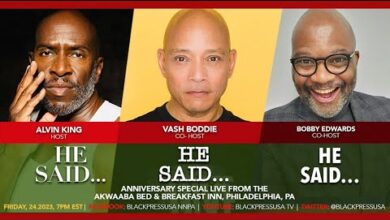Black Men Awarded for Their Inspiration to Youth

By Antonio Ray Harvey
California Black Media
Ida B. Wells-Barnett (1862–1931), a Black investigative journalist, women’s rights activist, and civil rights advocate, is renowned for her campaign against lynching.
Wells-Barnett was instrumental in shaping public opinion against lynching through her newspaper editorials, pamphlets, clubs, and lecture tours across the northern United States. Wells held the position of secretary in the Afro-American Council, where she led its anti-lynching bureau. Her efforts paved the way for the National Association for the Advancement of Colored People’s (NAACP) anti-lynching campaign.
Following the racial violence of the 1908 Springfield massacre in Illinois, the NAACP was founded on Feb. 12, 1909. The organization was established by over 60 founding members, including Wells- Barnett, W. E. B. Du Bois, Mary McLeod Bethune, William Bulkley, the Rev. Francis Grimke, and Mary Church Terrell, among others.
The NAACP’s principal objective is to secure political, educational, social, and economic equality for minority groups in the United States and eradicate racial prejudice. As a service organization, it aims to remove all barriers of racial discrimination through democratic processes.
The NAACP is America’s oldest and largest civil rights organization and today comprises a network of over 2,200 affiliates spanning all 50 states, the District of Columbia, Japan, and Germany. Headquartered in Baltimore, its membership exceeds 500,000.
The NAACP California-Hawaii State Conference, with its 72 branches and youth units, is actively engaged across both states to promote racial justice and equality.
Rick L. Callender, who serves as president of the NAACP’s California/Hawaii State Conference and is a member of the National NAACP Board of Directors, spoke with California Black Media about the work the state conference is doing.
What does your organization do to improve the lives of Black people in California?
We’re committed to dismantling racism and disrupting inequality to create a society where all people can truly be free. Our efforts encompass active civic engagement, systematically fostering racial equity, and championing policies and institutions that urgently address the specific needs of Black communities, who bear the brunt of race- based discrimination.
What was your greatest success over the course of the last year?
(We) have been sticking to our long-lived goal of fighting for justice and prioritizing our community’s needs. In the past year, we notched up some significant victories with Gov. Newsom signing three of our priority bills into law, namely Assembly Bill (AB) 1327, Senate Bill (SB) 673, and Assembly Bill 1165.
AB 1327 addresses a standing problem that many California high school student-athletes of color have dealt with: racism during high school sporting contests. The bill mandates … (the creation of) a standardized form for recording hate violence and hazing incidents at high school sporting events.
SB 673, authored by Sen. Steve Bradford (D-Inglewood), guarantees that Black children and young Black women will receive the attention and protection they need when they are reported missing.
AB 1165, authored by Assemblymember Kevin McCarty (D- Sacramento), addresses racism on school campuses by encouraging schools to implement a restorative justice practice when a student has perpetrated racist bullying, harassment, or intimidation.
In your view, what is the biggest challenge Black Californians face?
The (Conference) is on a mission for total racial equity, delving into realms like health, housing, education, economic development, criminal justice, and environmental wellbeing.
What was your organization’s biggest challenge?
Just like all nonprofits, funding the efforts are always at the forefront. Secondly, generating a base of trained and engaged volunteers also creates a challenge.
Does your organization support or plan to get involved in the push for reparations in California?
We are and have been at the forefront in the battle for reparations at the national, state and local levels. NAACP San Francisco President, Rev. Amos Brown, is also at the forefront of the reparations’ movement in California, not just as a participant but as a key player.
How can more Californians of all backgrounds get involved in the work you’re doing?
Join the NAACP to get involved with activists and organizers in your local NAACP branch and stand tall against injustice, dismantle systemic racism.




